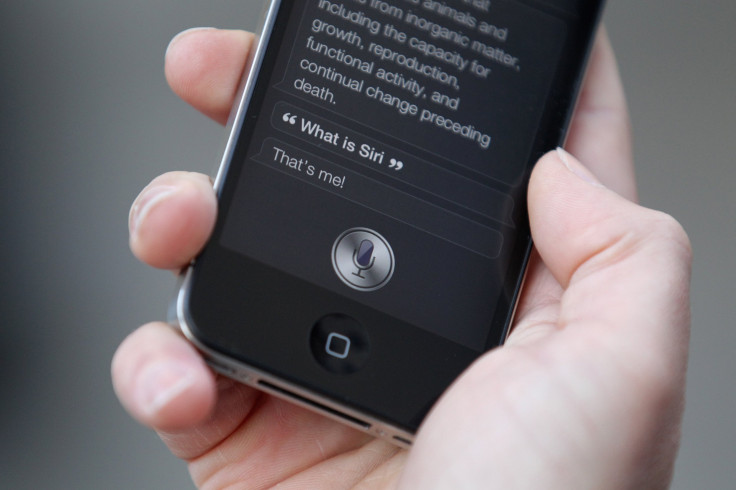WWDC 2016 Preview: How Apple Inc. Can Make Siri Great And Take On Amazon, Google And Microsoft

“Hey, Siri, when is Apple going to make you great?”
Five years ago, when Apple first integrated its voice-activated digital assistant into iPhone software, it called the technology “amazing.” And as Apple execs Phil Schiller and Scott Forstall gave a live demonstration at the iPhone 4s launch event, it certainly looked pretty groundbreaking.
Since then Siri has become available on more devices — iPad, Apple Watch and Apple TV — but its core functionality hasn't really changed, leaving Apple trailing in a world where artificial intelligence and machine learning are seen as the must-have features of a modern operating system.
Last month Google showcased its push into this area, highlighting just how important it believes its AI-powered assistant is in all facets of computing. Amazon’s integration of Alexa into its Echo speaker and Microsoft’s deep integration of Cortana into Windows 10 are further examples of other companies blowing past Apple and Siri in terms of capabilities and sophistication.
And it’s not only the big companies that are threatening to outpace Apple. Dozens of startups — such as virtual assistant Viv, built by the creators of Siri — are seeking to disrupt the space, just as Siri did when it launched as an app in 2010.
Apple needs to catch up, and at its Worldwide Developer Conference next week, the company is expected to make a big splash to get Siri back on track.

Apple has given little indication of what CEO Tim Cook and his cohort of executives are planning to announce during the two-hour keynote address Monday in the Bill Graham Auditorium in downtown San Francisco, but all reports point to Siri taking center stage.
“Siri is going to be a significant part of the keynote in many ways,” Mark Gurman, a journalist with a strong track record of breaking Apple news before it's announced, said last week on the "Jay and Farhad Show" podcast. Gurman, who worked for 9to5Mac for the last four years and is about to take up a position with Bloomberg to cover Apple, says the company will make two significant announcements regarding Siri.
The first is that it will bring the digital assistant to its desktop operating system, Mac OS X — which is likely to be renamed MacOS next week. Leaked screenshots of the app's interface back up this claim, and Siri on desktop is set to allow users do everything they can with the product on iPhones today, including controlling music, sending emails, setting reminders and getting directions.
“[Bringing Siri to the desktop] would broaden the scope of the platform and also deliver more data back to Apple, furthering its AI capabilities,” Martin Garner, analyst at CCS Insight, told International Business Times. “Deeper integration within Apple TV is also highly likely.”
More importantly, however, will be the launch of a software development kit (SDK) for app developers to let them hook into Siri's voice capabilities. To date, Apple has limited what Siri could control to its own apps and a select group of others, such as Shazam, Open Table, Rotten Tomatoes and Yelp.
Opening up Siri to third-party apps would make it exponentially more powerful. It might allow users to order an Uber using only their voice, start playing a show on Netflix, post a photo to Instagram, or update a Facebook status. Apple is likely to demonstrate some of these integrations onstage Monday, and one of the possible apps being shown could be Uber. Apple recently held talks with Uber CEO Travis Kalanick to discuss “future partnership opportunities," though Apple’s subsequent investment in Uber’s Chinese rival Didi Chuxing could have soured the relationship.
Despite Apple getting there first with a digital assistant, it is widely perceived as having fallen behind the competition in the past five years. “There's no question that Amazon, Google and Microsoft have made great strides in the AI-powered digital assistant space,” Garner said. “Amazon, in particular, has made notable progress with Alexa and the associated Amazon Echo device.”
While Apple is reported to be working on a version of Amazon’s Echo and Google’s recently announced Home speaker, it is not expected to be launched next week.

One of the reasons for Apple's slow pace of development with Siri, according to Gurman, is “almost exclusively due to privacy concerns.” The problem Apple wants to avoid is users trying to pass information to a sensitive app — such as a healthcare app — but ending up posting it as a Facebook status update.
While these announcements are a positive step forward in terms of what Apple can do with Siri, there could be so much more on the way but to get there Apple will need to get three three components right to deliver a good digital assistant experience — voice recognition, natural language processing, and the ability to serve up a useful response.
“While Apple’s voice recognition has improved it lags behind both Amazon and Google,” says Jan Dawson, chief analyst with Jackdaw Research. “Its natural language processing often gets tripped up by unfamiliar wording and Siri often seems to misinterpret the meaning of words even when it gets the words themselves right – here, too, it seems less good than Google or Amazon’s equivalents.”
Dawson adds that if it can get the first two components right, then opening up Siri to third party developers “will provide a big boost in value.”
One of the final acts of Steve Jobs’ reign as CEO of Apple was to purchase Siri Inc., the company that originally developed the software and launched it as a standalone app on the App Store. He believed strongly that a voice-first computing experience was the future. Since Jobs' death in October 2011, the company has not slowed down in its acquisition of technology in this space.
One of the most interesting acquisitions, which Apple has yet to show the result of in its consumer products, is Vocal IQ, a British company that was spun out of the University of Cambridge and which Apple quietly acquired at the end of 2015.

Vocal IQ claims to have built the world’s first self-learning dialogue API to put “real, natural conversation between people and their devices.” Prior to its acquisition by Apple, an employee gave this scathing assessment of the current crop of digital assistants — including Google Now, Cortana and of course Siri:
“Imagine hiring an assistant who, in most cases did not properly understand what you asked it to do, did not bother to tell you what it did not understand, and instead of clarifying what it did not understand, simply executed the result of the misunderstanding.”
However, by applying Vocal IQ’s technology to Siri, Apple could have a chance to catch up — and even surpass — the competition in this area. “Everyone is judging Apple on last year’s Siri, whereas it’s judging everyone else on this year’s products and announcements,” Dawson said. “Next week, we’ll know what Apple is announcing and what will be available to its users, and that will give us a better basis for comparisons.”
© Copyright IBTimes 2025. All rights reserved.





















